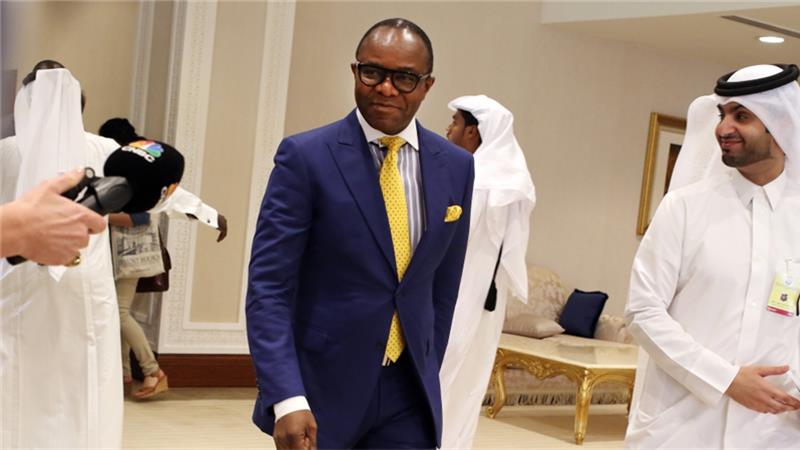- Oil Price May Fall to $44, Says Kachikwu
The Minister of State for Petroleum Resources, Dr. Ibe Kachikwu, has said crude oil price may fall to $44 per barrel if the Organisation of Petroleum Exporting Countries fails to reach a consensus this week.
The Federal Government has proposed a crude oil benchmark price of $42.5 per barrel for the 2017 budget, compared to this year’s $38 per barrel.
Brent, against which Nigeria’s oil is priced, dropped to $47.12 per barrel on Friday from $49 per barrel on Thursday.
OPEC will meet on November 30 in Vienna, Austria, to assign output quotas after agreeing on a framework deal in September to tackle the supply glut in the global oil market.
“The challenge is less with OPEC and more with the outer forces we don’t control. The United States is beginning to ramp up volumes again,” Kachikwu told Bloomberg in an interview in Tokyo.
He said, “My greater worry is less than OPEC’s ability to find unity in these issues, which I think we will; and more the fact of how much a decision that we make impacts on the pricing issues.”
Kachikwu said oil price might rise slightly above $50 per barrel if a consensus was reached, and could fall as low as $44 without a deal.
Oil prices fell more than two per cent on Friday, dragged down by uncertainty over whether OPEC would reach an output deal, after Saudi Arabia said it would not attend talks on Monday with non-OPEC producers to discuss supply cuts.
Top OPEC oil exporter Saudi Arabia had told the producer group it would not attend talks on Monday with non-OPEC producers to discuss limiting supply, OPEC sources said.
The source added that Saudi Arabia wanted to focus on having consensus within the organisation first.
Russia still planned to attend lower-tier talks on November 28 ahead of the OPEC ministerial meeting on November 30, a Russian source familiar with the matter told Reuters.
Reports that the state oil giant, Saudi Aramco, would in January increase oil supplies to some Asian customers also cast a shadow on markets, traders said.
A decline in China’s October crude oil imports to their lowest on a daily basis since January added to the bearish tone.
But analysts said fundamentals were little changed – apart from concerns over the fate of this week’s deal.
On Thursday, the oil minister of a non-OPEC nation, Azerbaijan, said OPEC was also pushing oil producers outside the group to make big cuts in output.
Most analysts expect some form of cut, but it is uncertain whether that will be enough to prop up a market dogged by oversupply since 2014.

 Forex4 weeks ago
Forex4 weeks ago
 Naira4 weeks ago
Naira4 weeks ago
 Billionaire Watch3 weeks ago
Billionaire Watch3 weeks ago



 Naira4 weeks ago
Naira4 weeks ago






 Naira3 weeks ago
Naira3 weeks ago


 Naira2 weeks ago
Naira2 weeks ago






 Naira2 weeks ago
Naira2 weeks ago
 Economy4 weeks ago
Economy4 weeks ago
























